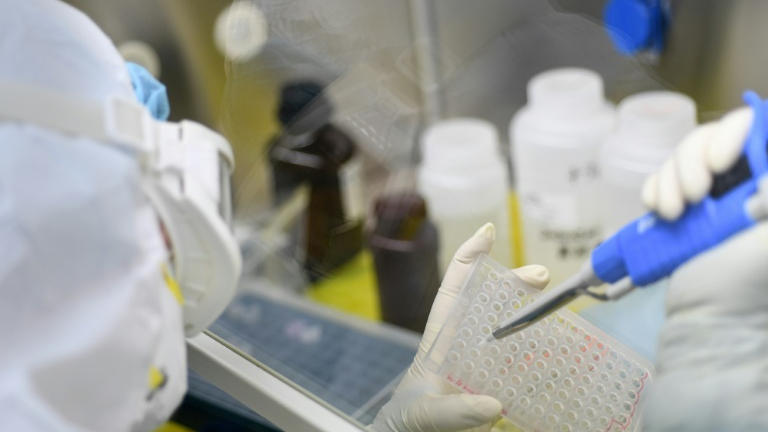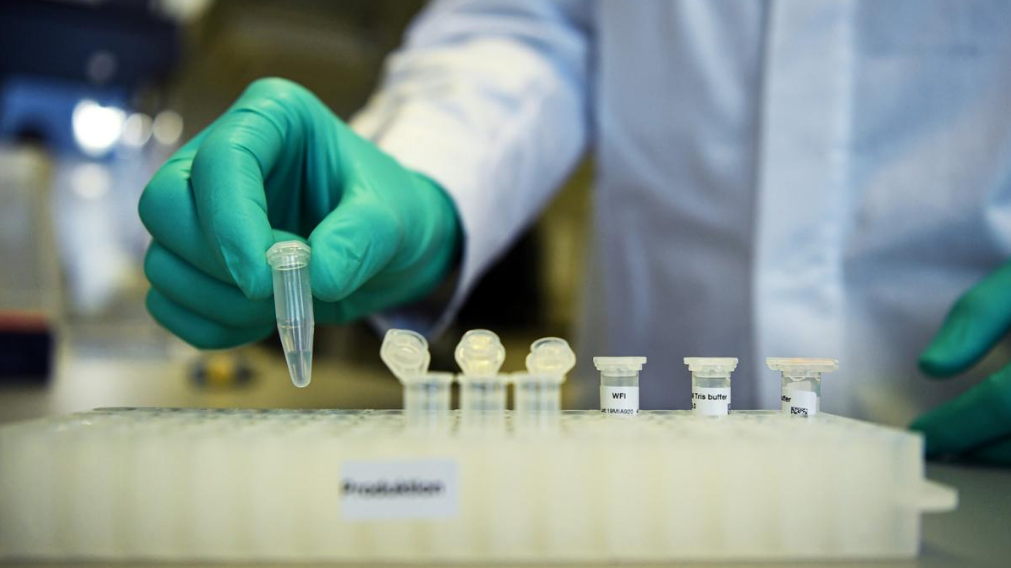
Editor's note: Tom Fowdy is a British political and international relations analyst and a graduate of Durham and Oxford universities. He writes on topics pertaining to China, the DPRK, Britain, and the U.S. The article reflects the author's opinions, and not necessarily the views of CGTN.
On March 16, German government ministers and politicians condemned a reported move from the U.S. that saw the Donald Trump administration attempt to purchase exclusive rights to a COVID-19 vaccine from the biopharmaceutical company CureVac, which would be used for America alone. "Germany is not for sale," economics minister Peter Altmaier told the media.
Erwin Ruddel, a member of the Bundestag's Committee on Health stated: "International cooperation is important now, not national self-interest," while Christian Lindner, leader of the liberal FDP party, attacked Trump for using "means available in an election campaign."
The report comes amid a worsening situation in the U.S. over the virus and a recession described as all but inevitable, which has sobered the president's otherwise negligent responses. While the move of America attempting to extract German innovation for its own ends appears desperate, it in fact has an extensive history.
Since the end of the Cold War, the U.S. has always sought to acquire German innovation illicitly and inappropriately to advance its own national interests. The newest development is but the latest in a longstanding historical trend and reaffirms a deepening distrust in ties between the two countries.
Germany has always been known for its high levels of scientific achievement. In the late 19th and early 20th centuries, the German Empire held more Nobel Prize winners in scientific fields than any other country, a legacy which has carried on to the present.
It has over the years acquired international prestige for its vast successes in engineering and physics, even during its darkest days in the Nazi Era. The defeat of Adolf Hitler's regime thus naturally had deep political implications. In the emerging Cold War environment in the late 1940s, the U.S. saw opportunity in Germany's scientific successes for itself.

An employee of German biopharmaceutical company CureVac, demonstrates research workflow on a vaccine for the COVID-19 disease at a laboratory in Tuebingen, Germany, March 12, 2020. /Reuters
An employee of German biopharmaceutical company CureVac, demonstrates research workflow on a vaccine for the COVID-19 disease at a laboratory in Tuebingen, Germany, March 12, 2020. /Reuters
Subsequently, it launched a scheme known as "Operation Paperclip" whereby in competition with the Soviet Union it sought to recruit and transfer as many German scientists to the United States as possible, including former Nazi leaders, in order to make massive technological gains. This saw over 1,600 people recruited, particularly in the field of rocketry and aerospace engineering and allowed America to make ground on its space race against the Soviet Union. The estimated value of the patents which it obtained totaled over 10 billion U.S. dollars.
Despite the fact that the Cold War is long over, America's desire to weaponize and obtain German innovation for its own national interests has not gone away. Instead, the U.S. has since that time pursued industrial espionage against German innovation without the country's consent. In 1999, the American espionage program ECHELON targeted the German firm Enercon who had just created a new generator for wind turbines.
Before applying for a U.S. patent, the firm discovered that somehow an American rival to it with a European parliament report in 2001 later revealing that the firm had been subject to U.S. industrial espionage. The Irish Times later reported in 2018 that German firms continue to be subject to this activity, and that German intelligence agencies are aware of the activity but not always disclosed it.
Given this, the fact that the Trump administration has reportedly sought to acquire a COVID-19 vaccine from a German firm is really not surprising. It may appear as an act of political desperation from the White House, but instead it affirms to a long term trend whereby the U.S. has sought to extract German intellectual property for its own national interest, often at the country's expense.
This serves to add to tensions and growing distrust between America and Germany with the former's commitment to transatlantic ties being thrown into unprecedented doubt owing to the very "America First" politics which the Trump administration advocates.
With this history, it is also ironic that the U.S. goes around accusing China of "intellectual property theft" when it has sought to obtain a potential vaccine and not even be prepared to offer Germany the benefits of it, who have over 6,000 cases.
In this case, it is important to understand the complicated history of America-Germany relations, and how Washington has seen Berlin's talent as an advantage not for the German people themselves, but solely for America. From operation paperclip to modern industrial espionage, Washington does not adhere to the rules it preaches and accuses other countries of violating.
(If you want to contribute and have specific expertise, please contact us at opinions@cgtn.com.)